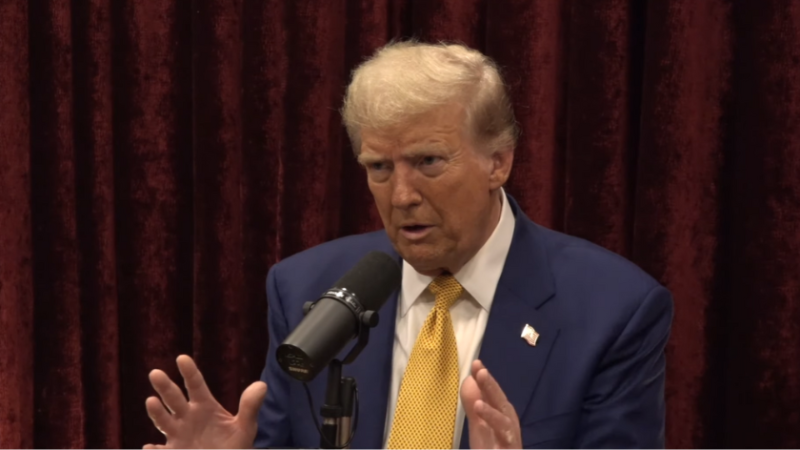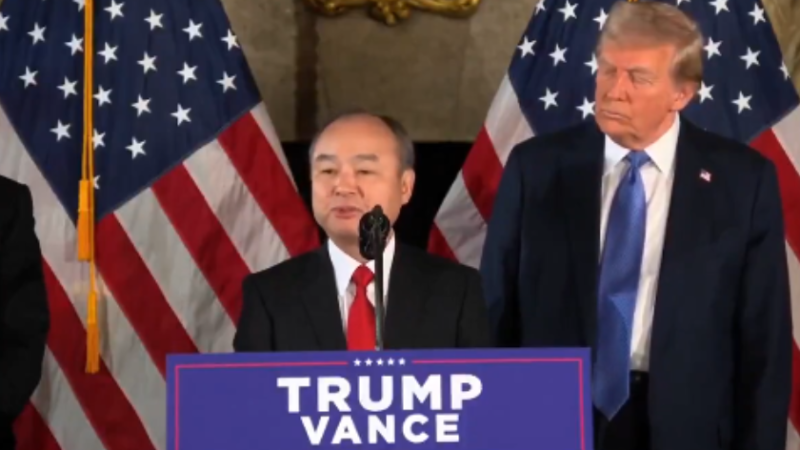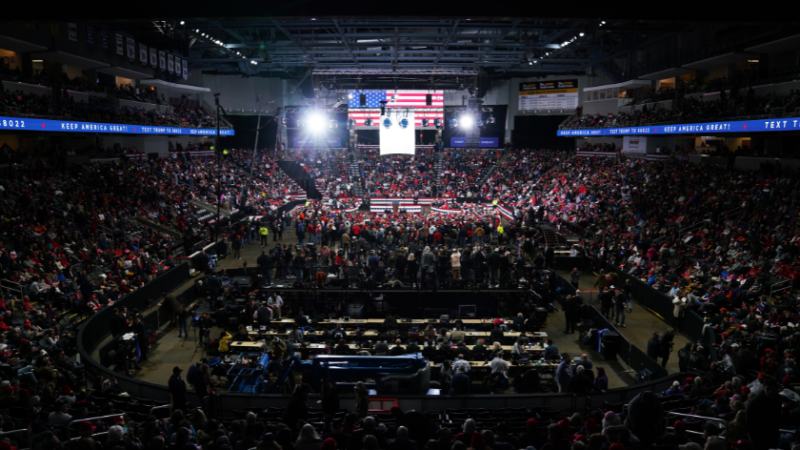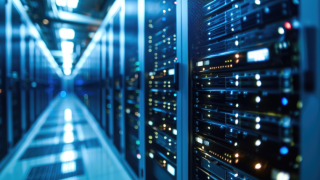January 20 marks the inauguration of Donald Trump as the 47th US president, returning to office after a four-year break following his 2020 election defeat.
Trump’s in-tray will likely be stacked, with the President pledging to “make heads spin” with several ambitious acts on day one.
Many of his initial acts will focus on his top-line issues, like immigration, ending the Ukraine War, and potentially pardoning political allies and January 6 convicts.
While tech and telecoms won’t be top of the 47th president’s in-tray, Capacity takes a look at what to expect from Trump’s second term.
Subscribe today for free
Chonk the CHIPS Act
President Trump has threatened to repeal a considerable amount of Biden administration legislation and right in the firing line is the CHIPS and Science Act, which offers federal subsidies to chipmaking firms to bring production to the US and away from Southeast Asia.
Prior to his election victory, Trump described the legislation as “so bad” and has threatened to replace it with tariffs, potentially as high as 100%, similar to those he plans to introduce on the automotive sector.

The Commerce Department under Biden expected Trump to cut the programme, as it rushed through millions of dollars of subsidies for companies like HP, Infinera, Corning, and Hemlock Semiconductor in anticipation of the axe.
There has been a possible hint Trump may not cut the Act entirely.
House Speaker and Republican Mike Johnson said the new administration “probably will” repeal the CHIPS Act, but later walked back his statement.
Also, several of the projects are constructed in Republican states, including Texas and Arizona, with several of Trump’s biggest cheerleaders in the Senate, such as Lindsey Graham and Steve Daines voting in favour of passing the legislation.
Trump could instead keep the Act, but alter the focus of fund allocations.
Repeal and replace Biden’s broadband efforts
Another Biden administration effort in the firing line is its broadband projects.
The Trump team claim the previous government spent too much time studying the impact of releasing more spectrum than actually making new connectivity available.
It’s uncertain how Trump will treat the Biden-Harris Administration’s Broadband Equity, Access, and Deployment (BEAD) programme, which allocated more than $1.3 billion to connect more than 140,000 homes and businesses to affordable, high-speed internet.
Brendan Carr, Trump’s pick to lead the Federal Communications Commission (FCC), wrote in Project 2025, a lengthy ultra-conservative policy wishlist aimed at steering the new administration's efforts, that prior federal technology and telecommunications programs were “plagued by a troubling lack of accountability and good governance”.
“They would benefit from stronger oversight and a fresh look at eliminating outdated regulations that are doing more harm than good,” Carr wrote.
Trump himself has repeatedly sought to distance himself from Project 2025 and some of its more radical ideas — like placing the Department of Justice directly under presidential control and banning terms like "gender equality" and "abortion” from all laws and federal regulations — but it remains to be seen what he’ll to BEAD and other “Internet for All” initiatives.
More data centre investment
The data centre investment boom looks set to continue under Trump, with the President already unveiling projects before taking office.
Trump stood proudly next to both Hussain Sajwani and Masayoshi Son as they unveiled plans to invest tens of billions of dollars to build US data centres. In addition, close ally Elon Musk is spending millions building out a supercomputer facility in Memphis, Tennessee that local lawmakers suggest will scale to one million GPUs.

Investment in the US data centre market is on an exponential growth, with Microsoft alone allocating half of its $80 billion AI-focused data centre fund to build sites in the US.
Trump’s business past and close ties with several tech and real estate billionaires could help attract even more data centre investment to meet the growing demand for AI and cloud services.
‘Free speech’ changes at the FCC
Leading the line at the FCC — subject to congressional approval — will be Carr, the agency’s senior-most Republican commissioner.
The Trump Transition team described Carr as a “warrior for free speech”, a hot-button issue for Trump’s administration.
For example, Carr took issue with Kamala Harris’ appearance on Saturday Night Live right before the election, saying it was a “clear and blatant effort to evade the FCC's Equal Time rule”.
Trump and his closest allies claim to be advocates for free speech, and there has been some suggestion the administration may use agencies like the FCC to address what it perceives as online free speech issues.
To potentially prepare for such changes, Meta dropped its fact-checking service in favour of community notes, similar to Musk’s X (Twitter) platform.
Other changes set to take place at the FCC under Carr will see the agency “end its promotion of Diversity, equity, and inclusion (DEI)” and cut costs.
The FCC’s most recent budget request said that promoting DEI was the agency’s second highest strategic goal.Starting next year, the FCC will end its promotion of DEI. pic.twitter.com/we7ViUXczA
— Brendan Carr (@BrendanCarrFCC) November 18, 2024
More federal awards for Starlink?
It took just over two years for the FCC to greenlight Starlink’s direct-to-phone satellite internet service, with the Elon Musk-owned firm only receiving regulatory approval last November.
With Musk set to take a key role in the Trump administration as co-lead of the ‘Department’ of Government Efficiency (DOGE), it gives him close proximity to decision-makers who could potentially hand lucrative boons to his many business ventures, including Starlink.

One early supporter is Carr, who claimed the Biden administration engaged in “regulatory harassment” of Musk and that the decision to revoke Starlink subsidies “prioritised political and ideological goals at the expense of connecting Americans”.
With Carr at the helm of the FCC, his pledge to overhaul the Biden administration’s broadband infrastructure programme could see Starlink given more federal awards behind its long-awaited direct-to-phone application.
Cutting costs
Musk’s DOGE project will be a central point in Trump administration 2.0, with the White House looking to roll back on what it claims were egregious spending by his predecessor.
Musk will share the project - which despite its name is not an official government department - with former Republican presidential candidate Vivek Ramaswamy. The pair will advise the President and administration officials on projects to cut, with fears the entire US Department of Education may be a victim of the cuts.
I am willing to serve pic.twitter.com/BJhGbcA2e0
— Elon Musk (@elonmusk) August 20, 2024
For tech and telecoms, DOGE will look at excess spending on projects, including what it considers “excess regulations and wasteful expenditures”.
There’s even the possibility DOGE may try to encourage several federal agencies to be restructured to save costs and streamline operations, with the Department for Energy a potential target given its clean energy responsibilities.
Scale back clean energy awards
Central to potential cost-cutting could see the trove of clean power initiatives unveiled under Biden fall victim to DOGE.
Trump is a known climate sceptic, having previously described it as “non-existent” and claimed it was a hoax created by the Chinese government.
His party’s election manifesto affirmed such plans to return to fossil fuels, with “DRILL BABY DRILL” all in caps alongside a pledge to make the US “energy independent again”.

“The US has more liquid gold under our feet than any other Nation, and it's not even close. The Republican Party will harness that potential to power our future,” the manifesto read.
During his second presidency, Trump may even roll back climate initiatives and subsidies for clean energy technologies, a potential knife in the heart for operators looking to switch to renewables. One such order was one of Biden’s last acts, which instructed federal agencies to make sites ready for new AI data centres and clean power facilities.
Repeal of Biden’s AI executive order
Another technology-related piece of Biden legislation that looks set to be cut is President Biden’s Executive Order on AI, which instructed government agencies to introduce risk governance to AI technologies.
Trump and the Republican Party have previously decried the order, claiming it is “dangerous” and that it “imposes radical left-wing ideas on the development" of AI technologies.
In its place, the Trump White House would instead support AI development “rooted in free speech and human flourishing”.
At a campaign rally in Iowa last December, Trump said he would cancel the executive order “on day one” and ban AI technologies used to censor the speech of American citizens.
Tariffs and trade wars
Trump’s second term looks set to be just like the first: An economic rollercoaster with protectionist tariffs set to make their return.
Trump consistently implemented tariffs throughout his first term, hitting everything from solar panels to cars, as the President sought to get what he considered better deals for the country.
The return of tariffs would likely ramp up trade tensions once again, potentially impacting the manufacturing of 5G infrastructure and telecommunications equipment.
Having learnt from his first time, other countries are likely better prepared, with officials in Europe rallying together in the wake of his election victory to prepare for more tariffs.
Reverse crackdown on crypto
Trump’s second administration looks set to end what his election manifesto described as the “Democrats' unlawful and un-American crypto crackdown”.
Trump’s team suggested the right to mine Bitcoin was a personal freedom, “every American has the right to self-custody of their digital assets, and transact free from government surveillance and control”.
Trump’s administration also opposes any attempt by the Federal Reserve to create a central bank for digital currencies. While America’s central bank has previously looked into the idea, no official line is being pursued at this time.
Trump and his team are pro-crypto, with the 47th US president having his own line of NFTs, which he advertises as “digital trading cards”.
In the lead up to his inauguration, both the President and his wife launched their own meme coins. The president’s token, $Trump tripled in value before tanking when first lady, Melania, launcher her own coin, $Melania.
My NEW Official Trump Meme is HERE! It’s time to celebrate everything we stand for: WINNING! Join my very special Trump Community. GET YOUR $TRUMP NOW. Go to https://t.co/GX3ZxT5xyq — Have Fun! pic.twitter.com/flIKYyfBrC
— Donald J. Trump (@realDonaldTrump) January 18, 2025
The meme coins add to his ever-growing line of merch, including sneakers, bibles, and strips of suits he previously wore.
RELATED STORIES
Infinera secures $93m CHIPS grant as Trump transition looms
Trump names Biden critic, Starlink ally Brendan Carr to lead FCC






